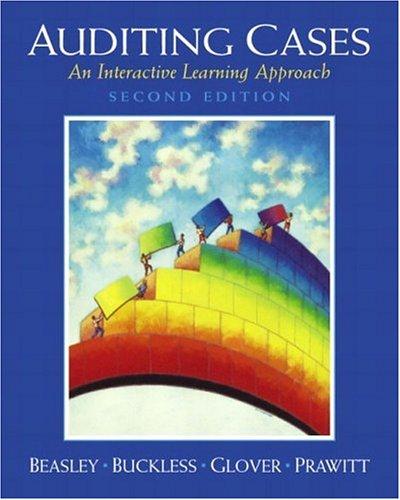Question
I need help on replying to this discussion post please! Replying to this post with 200 words: The general purpose for this set of Model
I need help on replying to this discussion post please!
Replying to this post with 200 words:
"The general purpose for this set of Model Rules all deal with whether a lawyer should or should not represent a client. Rules dealing with "Meritorious Claims and Contentions," "Expediting Litigation," and "Candor toward the Tribunal" will all be discussed. The purpose of the rule dealing with meritoriousclaims and contentions is to make sure that there is no cases that are not based in law, furthermore, both the defense and prosecution are affected by this rule by making it so that it is required that "every element of the case be established" (American Bar Association). Another aspect of this rulestates that prosecutors need to "disclose to the defense and to the tribunal all unprivileged mitigating information known to the prosecutor" (Connecting Ethics and Practice, 2nd Edition). An example of breaking this rule would be if the prosecution holds onto a piece of evidence that would end up affecting the accused party's verdict, and that evidence was not shared with the defense or the rest of the court. Biblically speaking, this rule deals with honesty, as making sure your case is legally sound, as well as not hiding evidence to change verdicts are both honest virtues. As for expediting litigation, the purpose of the rule is so trials do not go on for too long. Furthermore, it also serves as a way for the lawyer to be honest about their time with their client, and to not overstep their boundaries and charge for more time then they should. When it comes to violating this rule, overstepping boundaries and charging for more then they should is the major one. A lawyer cannot claim to seek extended times away from their client, then include that time in charging the client for their services. Again, biblically speaking, this rule deals mostly with honesty as well as being prepared. Finally, the last rule and its purpose, candor towards the tribunal, is to make sure that, one, the lawyers do not stand by false statements, and two, make sure that the lawyer does not let the accused commit any crime that they know about. An example of violating this rule is if a lawyer knowingly "offer[s] evidence that the lawyer knows to be false" (American Board Association). Or, if a lawyer makes a false claim stated as the truth or if a lawyer does not correct a false claim, even to the detriment to their case. Biblically speaking, this entire rule falls under the idea of honesty. A lawyer's honesty, or lack thereof, can greatly affect the lives of their clients, having a biblical view that honesty towards one's authorities and neighbors should not be violated also puts the lawyer's reputation in a better light."
Step by Step Solution
There are 3 Steps involved in it
Step: 1

Get Instant Access with AI-Powered Solutions
See step-by-step solutions with expert insights and AI powered tools for academic success
Step: 2

Step: 3

Ace Your Homework with AI
Get the answers you need in no time with our AI-driven, step-by-step assistance
Get Started


